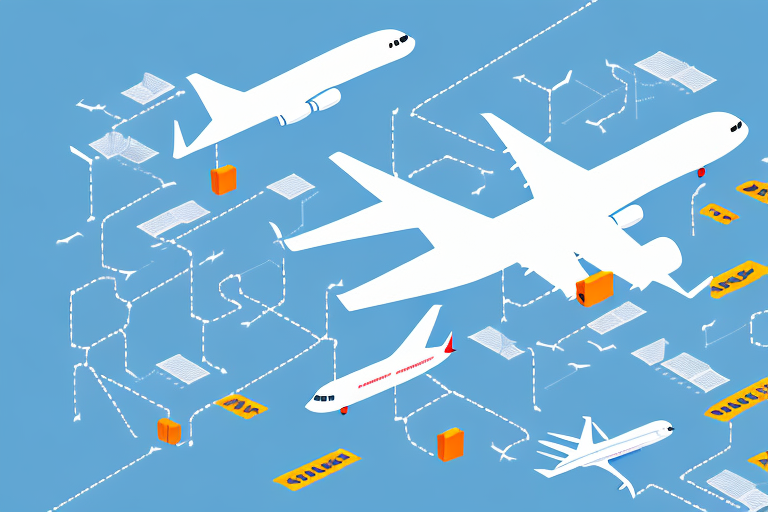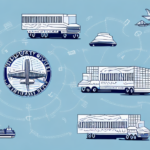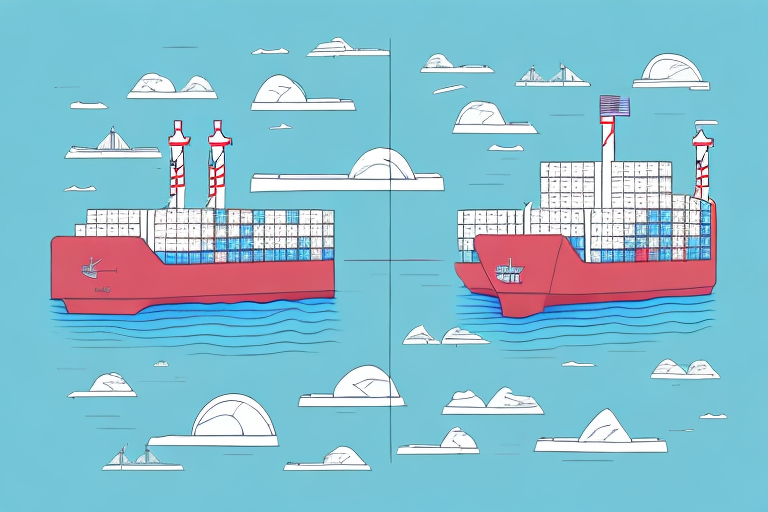Understanding the Benefits of Air Waybill (AWB) in Supply Chain Management
In the world of global trade, transport and logistics are paramount in ensuring the efficient delivery of goods across continents. Companies must maintain a seamless supply chain to thrive, and the Air Waybill (AWB) plays a critical role in this process. An AWB is a legal document issued by airlines to shippers, acknowledging receipt of cargo for transportation and outlining the contract between the shipper and carrier. In this article, we will delve into the intricacies of AWB and explore how it enhances supply chain management.
What Is an Air Waybill (AWB) and How Does It Work?
An Air Waybill (AWB) is a receipt issued by an airline for goods accepted for air transport. It functions as a contract of carriage between the shipper and the carrier, containing vital shipment information such as the shipper's and consignee's names and addresses, flight details, and other pertinent transportation data. The AWB is instrumental in tracking and identifying shipments efficiently.
One significant advantage of using an AWB is the simplification of the documentation process for international shipments. Serving as a legal document, the AWB verifies ownership of the goods and provides evidence of the contractual agreement between shipper and carrier. Additionally, customs officials utilize the AWB to verify shipment contents and ensure compliance with necessary taxes and duties.
Moreover, the AWB includes a unique tracking number, enabling real-time monitoring of the shipment's progress and location. This feature is especially beneficial for time-sensitive shipments, such as perishable goods or urgent medical supplies, where timely delivery is crucial. According to the International Air Transport Association (IATA), effective tracking can reduce transit times by up to 20%.
The Importance of Accurate Information in Air Waybill (AWB)
Accuracy in the AWB is paramount for the smooth movement of goods within the supply chain. Critical details such as product description, weight, volume, and origin and destination addresses must be precise. Any inaccuracies can result in significant delays and financial losses. To prevent such issues, shippers should meticulously verify all information provided in the AWB.
Accurate AWB information is also essential for compliance with customs regulations. Customs authorities rely on precise data to ensure that transported goods adhere to relevant laws and standards. Inaccurate information can lead to penalties, fines, or even the seizure of goods. Therefore, maintaining up-to-date and correct AWB details is crucial for seamless cross-border trade.
Furthermore, accurate information in the AWB is vital in resolving disputes or claims. Discrepancies in the AWB can complicate the resolution process, making it challenging to address issues effectively. Ensuring the correctness of AWB data helps avoid such complications and facilitates swift dispute resolution.
How Air Waybill (AWB) Helps to Reduce Supply Chain Time
The AWB is instrumental in reducing the time required to transport goods from origin to destination. By containing all necessary shipment information, the AWB aids in tracking cargo location in real-time. Logistics companies can optimize cargo handling processes, leading to reduced transit times and enhanced overall supply chain efficiency.
In addition to time savings, the AWB minimizes the risk of cargo loss or damage during transportation. As a legal contract, the AWB details the nature of the goods, their weight, and packaging specifications. This information ensures proper handling and transportation, thereby reducing the likelihood of damage or loss. According to a study by ShipScience, the implementation of AWB can decrease shipment-related damages by up to 15%.
The Role of Air Waybill (AWB) in Tracking and Tracing Shipments
Tracking and tracing shipments are essential components of modern supply chain management. The AWB facilitates this by providing shippers with the ability to monitor their goods throughout the transportation process. Real-time tracking information enhances visibility, allowing for better planning and resource allocation, reducing idle time, and boosting productivity.
Additionally, the AWB serves as a legal contract between the shipper and the carrier, detailing the origin and destination, type and quantity of goods, and the terms of transportation. This comprehensive documentation is crucial in resolving any disputes that may arise, ensuring both parties are aware of their responsibilities and obligations.
The Advantages of Using Air Waybill (AWB) in International Trade
International trade necessitates the movement of goods across borders, requiring various documents for customs clearance. The AWB is the most critical document for air shipments, acting as legal evidence of the contract of carriage between shipper and carrier. It enables shippers to meet customs obligations and facilitates hassle-free clearance through customs authorities.
Furthermore, the AWB's tracking system allows shippers to monitor the movement of their goods from origin to destination. This real-time information includes the location of goods, expected delivery dates, and any transit delays, essential for effective inventory planning and supply chain management.
According to a report by ShipScience, businesses using AWB for international shipments experience a 25% improvement in customs clearance times.
How Air Waybill (AWB) Can Help to Facilitate Customs Clearance
Cross-border trade involves navigating various customs authorities and complying with diverse regulations, which can be challenging. The AWB assists shippers by providing essential information such as product descriptions, quantities, and values, enabling customs officials to verify shipment contents and ensure regulatory compliance.
This accurate documentation streamlines the clearance process, reducing the likelihood of delays and ensuring that shipments move smoothly through customs. As a result, the AWB is pivotal in maintaining efficient and compliant international trade operations.
Key Elements of an Air Waybill (AWB) and Their Significance
An AWB comprises several key elements, each significant to the transport and logistics process:
- Shipper's Name and Address: Identifies the party sending the goods.
- Consignee's Name and Address: Identifies the recipient of the goods.
- Flight Details: Includes flight number and date, essential for tracking.
- Origin and Destination: Specifies where the goods are coming from and where they are headed.
- Nature of the Goods: Describes the items being transported, aiding in handling and compliance.
- Total Weight and Volume: Provides information necessary for cargo handling and transportation logistics.
These elements ensure the smooth movement of goods and are vital for effective supply chain management.
Pro Tips for Filling Out an Air Waybill (AWB) Accurately
Accuracy is critical when completing an AWB. Errors can lead to delays, increased costs, and potential regulatory issues. Here are some pro tips for accurately filling out an AWB:
- Double-Check Information: Verify all details before submission to ensure accuracy.
- Use Clear and Legible Handwriting: Prevents misinterpretation and errors during processing.
- Mention Airline's Name and Flight Number Correctly: Ensures proper routing and tracking of the shipment.
- Provide Accurate Weight and Volume: Essential for cargo handling and transportation logistics.
- Include Detailed Product Descriptions: Aids in compliance and reduces the risk of customs issues.
Common Mistakes to Avoid When Using an Air Waybill (AWB)
While using an AWB, shippers may encounter common mistakes that can lead to significant complications. Avoid the following errors to ensure smooth shipment processing:
- Incorrect Information: Providing inaccurate product descriptions, weight, or volume can cause delays and increased costs.
- Incomplete Origin and Destination Addresses: Missing or incorrect addresses can lead to misrouting and delivery failures.
- Misplacing the AWB: Losing the AWB can halt the shipment process and complicate tracking efforts.
- Non-Compliance with Regulations: Failing to adhere to regulatory requirements can result in fines, penalties, or shipment seizures.
How a Digital Air Waybill (e-AWB) Can Enhance Supply Chain Efficiency
A Digital Air Waybill (e-AWB) is an electronic version of the traditional paper-based AWB. This digital transformation is revolutionizing the transport and logistics industry by making processes more efficient. The e-AWB facilitates seamless information exchange among stakeholders, speeding up procedures and enhancing transparency.
Benefits of e-AWB include:
- Time Savings: Reduces the time spent on manual data entry and document handling.
- Cost Reduction: Eliminates the need for paper, printing, and storage costs.
- Increased Accuracy: Minimizes errors associated with manual entry, enhancing data reliability.
- Enhanced Security: Provides secure data transmission, reducing the risk of document loss or tampering.
According to IATA, the adoption of e-AWB can lead to a 30% increase in processing efficiency and a 20% reduction in operational costs.
Regulatory Requirements and Compliance Related to the Use of Air Waybill (AWB)
The AWB is a legal document, and its proper use requires adherence to various regulatory standards and compliance measures. Key regulatory requirements include:
- Accurate Information: Ensuring all data in the AWB is correct to meet customs compliance and avoid legal issues.
- Local Laws and Regulations: Complying with specific regulations related to cross-border trade in different jurisdictions.
- IATA Standards: Adhering to the standards set by the International Air Transport Association (IATA) for the use of AWB.
- Data Privacy Laws: Ensuring that sensitive information is handled in compliance with data protection regulations.
Compliance with these regulations is essential to avoid penalties, ensure smooth customs clearance, and maintain the integrity of the supply chain.
How the Use of Air Waybill (AWB) Can Improve Customer Satisfaction
The use of AWB can significantly enhance customer satisfaction by providing transparency, reliability, and accuracy in the logistics process. Key ways AWB contributes to customer satisfaction include:
- Transparency: Customers can track their shipments in real-time, providing visibility into the delivery process.
- Reliability: Accurate and timely information ensures that customers receive their goods as expected.
- Efficiency: Streamlined processes reduce delays, enhancing the overall customer experience.
By facilitating smooth customs clearance and timely delivery, the AWB ensures that customers receive their orders promptly, thereby increasing trust and satisfaction. According to ShipScience, companies utilizing AWB report a 15% increase in customer satisfaction rates.
The Future of Air Waybill (AWB): Trends, Challenges, and Opportunities
The transport and logistics industry is continually evolving, and so is the use of AWB. The future of AWB is poised for significant advancements, driven by trends such as digitization and automation. Key trends and future directions include:
- Increased Adoption of e-AWB: Transitioning from paper-based to electronic AWB will continue, enhancing efficiency and reducing costs.
- Integration with Blockchain: Utilizing blockchain technology for secure and transparent data sharing among stakeholders.
- Enhanced Data Analytics: Leveraging data from AWB to optimize supply chain operations and improve decision-making.
Despite these opportunities, challenges such as regulatory compliance, data security, and the need for industry-wide standardization remain. The logistics industry must navigate these challenges to fully realize the benefits of AWB advancements.
As global trade expands, the demand for efficient and reliable shipment documentation like AWB will grow, presenting opportunities for innovation and improved supply chain management.
Case Studies: Successful Implementation of Air Waybill (AWB) in Supply Chain Management
Numerous companies have successfully implemented AWB to enhance their supply chain management. Here are some notable examples:
- ABC Cargo: A logistics company that reduced their air freight transit time by 50% by utilizing AWB to optimize cargo handling processes.
- XYZ Ltd: A manufacturing firm that improved customer satisfaction by adopting AWB, providing customers with real-time shipment status updates.
- Global Freight Co.: Implemented e-AWB, resulting in a 30% decrease in administrative costs and a 25% increase in processing speed.
- FastTrack Logistics: Leveraged AWB data analytics to forecast demand more accurately, reducing inventory costs by 20%.
These case studies highlight the tangible benefits of integrating AWB into supply chain operations, demonstrating improved efficiency, customer satisfaction, and cost savings.
In conclusion, the Air Waybill (AWB) is a vital document in supply chain management, offering transparency, reliability, and accuracy in the transport and logistics process. By optimizing resources and reducing transit times, AWB enhances supply chain efficiency. Ensuring regulatory compliance and leveraging digital advancements like e-AWB will further propel the effectiveness of AWB in global trade. As the industry continues to evolve, the AWB will remain a cornerstone of efficient and reliable supply chain management.




















